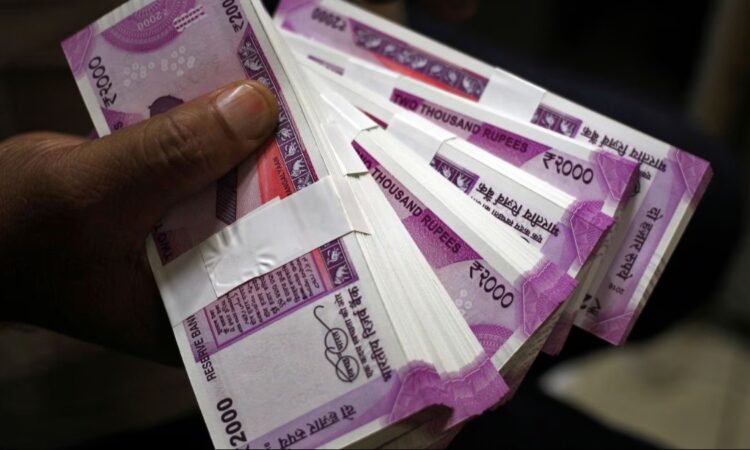
The growth in currency in circulation dropped to 3.7 per cent for the week ended February 9 from 8.2 per cent a year ago, news agency PTI reported on Sunday. Currency-in-circulation (CiC) refers to notes and coins in circulation, while currency with the public comprises notes and coins in circulation minus cash with banks.
The dip in the currency-in-circulation is partly attributed to the Reserve Bank of India’s (RBI) decision to withdraw Rs 2,000 banknotes. According to the RBI, commercial banks have reported double-digit growth in deposits in January, which too can be attributed to the withdrawal of Rs 2,000 currency notes.
The growth of Reserve Money (RM) decelerated to 5.8 per cent as of February 9, 2024, from 11.2 per cent a year ago (8.8 per cent adjusted for the first-round impact of change in Cash Reserve Ratio (CRR).
Components of RM include CiC, banks’ deposits in RBI, and other deposits with the central bank. The growth in CiC, the largest component of RM, decelerated to 3.7 per cent from 8.2 per cent a year ago, reflecting the withdrawal of Rs 2,000 banknotes, according to the RBI.
On May 19, 2023, the central bank announced the withdrawal of Rs 2,000 denomination banknotes from circulation. As of January 31, nearly 97.5 per cent of the Rs 2,000 banknotes were returned to the banking system, and only about Rs 8,897 crore worth of such notes were still with the public.
The total value of Rs 2,000 banknotes in circulation was Rs 3.56 lakh crore at the close of business on May 19, 2023, when the withdrawal of Rs 2,000 banknotes was announced.
Public and entities holding such notes were initially asked to either exchange or deposit them in bank accounts by September 30, 2023. The deadline was later extended to October 7, 2023. Deposit and exchange services at bank branches were discontinued on October 7, 2023.
The Rs 2,000 banknotes were introduced in November 2016, following the demonetisation of the then-prevailing Rs 1,000 and Rs 500 banknotes.
(With inputs from PTI)




